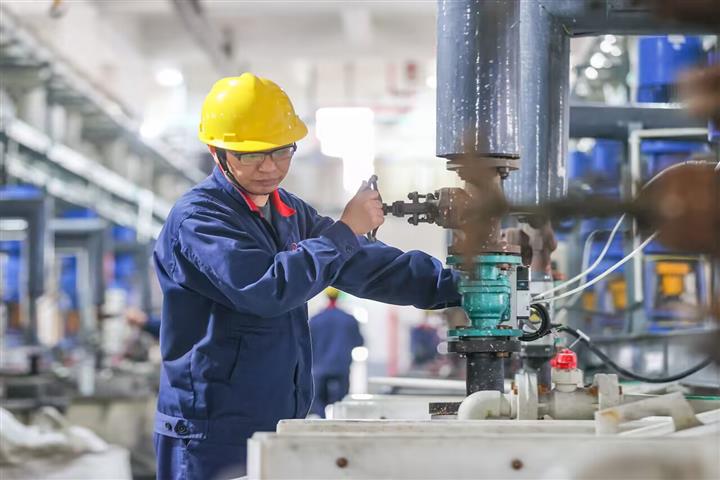 Lithium Carbonate Prices May Fall Below USD14,530 a Ton, Farasis Energy CEO Says
Lithium Carbonate Prices May Fall Below USD14,530 a Ton, Farasis Energy CEO Says(Yicai Global) April 3 -- The price of lithium carbonate is likely to fall below CNY100,000 (USD14,530) a ton as the production cost of the main raw material for power batteries is only about CNY30,000, according to the chief executive of Chinese lithium battery maker Farasis Energy.
The crystalline salt is neither scarce not difficult to produce, so prices should not have risen to between CNY500,000 and CNY600,000 a ton, Wang Yu said at the China EV100 Forum 2023 yesterday.
Lithium carbonate, used to make battery cathode, soared up to CNY600,000 a ton last year but has since declined to about CNY250,000.
“The supply and demand of lithium salt was balanced last year, but prices surged because of speculation,” Wang said.
Preliminary estimates show that China's auto and battery industries contributed at least CNY100 billion (USD14.5 billion) to profits in the lithium material sector last year because of extremely high battery material prices, according to Wang.
“Carmakers were willing to lose money to achieve their new energy vehicle sales targets last year, but are unlikely to do the same this year and might cut production if prices of raw materials are higher than expected,” he said.
Prices need to drop so the NEV market does not fluctuate greatly, Wang added, noting that Ganzhou-based Farasis Energy is generally optimistic about the industry's future.
“The production technology advance of low-cost sodium-ion batteries has also impacted the downward spiral of lithium salt prices this year,” according to Wang.
“The price of sodium carbonate is just CNY2,000 (USD290) a ton, making it more suitable to promote the wide use of sodium-ion batteries in China because of its relatively low natural resources of lithium,” he said, adding that the country's NEV sector will grow more steadily when resource constraints are lifted.
Last year, Farasis Energy made a breakthrough in the technology to produce sodium-ion batteries, and it expects to start mass production this year, Wang said. The firm plans to use the batteries in budget vehicles with a battery life of less than 300 kilometers in the short term and on cars with a battery life of between 300 kms to 500 kms in the medium term, Wang noted.
Farasis Energy plans to offer battery solutions that combine the use of the cheaper sodium-ion and more-powerful ternary batteries to carmaker clients in the future, Wang added.
Editors: Tang Shihua, Martin Kadiev